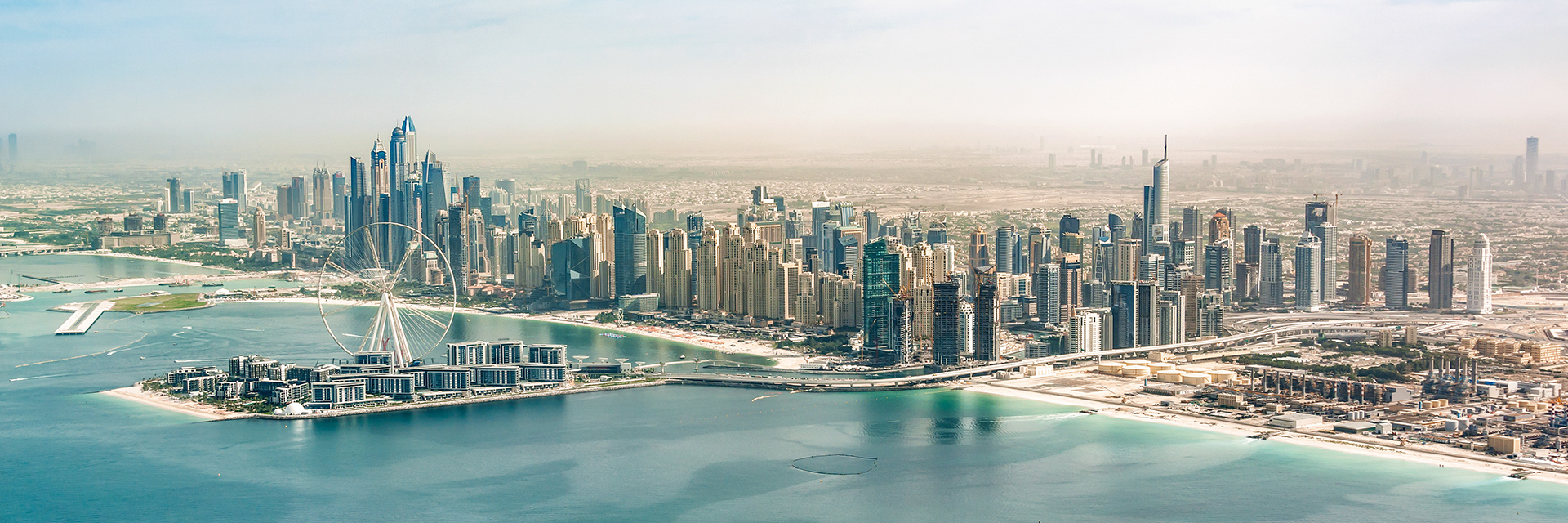Mauritius is an island off the east coast of Africa and is the business and financial hub of Africa providing numerous advantages for setting up your company or preserving your wealth.
Mauritius is an island off the east coast of Africa and is the business and financial hub of Africa providing numerous advantages for setting up your company or preserving your wealth.
Amongst other things Mauritius has:-
- A favorable time zone.
- Very attractive fiscal policies.
- Many active double taxation agreements.
- No exchange controls to limit the flow of money.
- A very efficient banking system.
- Reliable and modern infrastructure as well as professional staff and service providers to assist your company.
- Tax rates ranging from 3% to 15%.
Besides all the advantages of doing business in Mauritius, it is a subtropical climate with good weather all year round providing for a five-star holiday destination.
Your research into the region noted that the main types of companies to be incorporated by foreigners in Mauritius is referred to as either a:
-
- Global Business License (GBL)
- An Authorized Company.
Other companies which may be established include Domestic Companies, Freeport Companies, and Limited Partnerships. Mauritius is also well known for a jurisdiction in which you can preserve your wealth and this is mainly achieved through the setting up of an offshore Trust.
You are interested in using Mauritius to preserve your international wealth for future generations, however, you know that making use of business structures may be advantageous to you at some stage.
| Global Business License (GBL) | Authorized Company (AC) | Domestic Company | |
| Ownership | 100% foreign, natural or legal | 100% Foreign, natural or legal | Residents or non-resident shareholders |
| Shareholders | Min 1 / nominee shareholders can be used | Min 1 / nominee shareholders can be used | Min 1 |
| Directors | Min 2 Local resident directors | No local directors | Min 1 Local resident director |
| Board meetings | Chaired from Mauritius | Can be held anywhere | Chaired from Mauritius |
| Company secretary | Yes, management company | Optional, has to have a registered agent | Yes, must be a resident of Mauritius |
| Office space | Required as part of Economic Substance Requirements | Yes | Yes |
| Economic Substance requirement required / management from Mauritius | Yes – treaty benefits available | No – no treaty benefit available | Yes – treaty benefits available |
| Business activities | No restrictions, in line with business plan company must make an investment or provide a product or a service outside Mauritius | Same as for GCL. Restrictions include: banking, financial and fiduciary services and trusteeship business. | No limitations. Except if the majority shareholder is non-resident. |
| Audit | Yes, due 6 month after year end | No, only summary report | Yes if turnover is > MUR50million |
| Visas | Dependent on minimum investment through the occupancy permit. | No | Must be a Mauritian citizen |
| Capital requirements | No minimum | No minimum | No minimum |
| Privacy/Secrecy/public access | Confidential | Confidential | Available to the public |
| Exchange controls | No | No | No |
| KYC requirements | On all registered, beneficial owners, bank signatories, directors | On all registered, beneficial owners, bank signatories, directors | On all registered, beneficial owners, bank signatories, directors |
| Taxation | 15% 80% tax credit available resulting in the effective tax rate of 3% | 0% | 15% |
| Other taxes | No Capital gains tax, Inheritance tax, WHT or tax on bank interest | None | No Capital gains tax, Inheritance tax, WHT or tax on bank interest |
Global Business License
The main aim of this type of company is to make investments or to generate income from outside Mauritius. It may undertake any form of business provided that it is stipulated in its business plan.
| Company type | GBL |
| Shareholders and liability | Natural or legal, in proportion to shareholding |
| Disclosure | No, except by court order |
| Confidentiality | Confidential |
| Accounting and auditing | Unaudited financial summary to be submitted 6 moths after year end |
| Tax resident | Yes |
| Taxation | Corporate tax capped at 15% The tax credit may apply reducing tax to 3% (subject to meeting certain criteria) No capital gains tax No withholding taxes on royalties or interest |
| Legislation | Civil and Common law |
| Currency | Mauritian rupee |
| Capital and profit repatriation | No restriction |
| Local Sponsor requirement | No |
| Directors | Two resident directors required |
| Foreign ownership | Yes |
| Residence Visas | Based on occupancy permit requirements |
| License restrictions | No |
| Specific requirements | Have an annual minimum level of expenditure in Mauritian Rupee in line with its revenue generation (At least USD 12 000 per annum) To employ directly or indirectly a reasonable amount of suitably qualified employees to carry out the core income generation activities (i.e. 1 employee for turnover less than 100m USD) |
| Specific requirements – IP | Requires you to prove that appropriate amount has been spent on R&D to meet the substance requirements |
- At some stage, your expansion will require a Mauritian company for which the qualifying criteria (at least one) for registering a GBL company includes:
- Must have office premises in Mauritius;
- Employ on full-time basis at least one person to deal with administration (this may include resident directors appointed by a management company);
- MOI to include a clause to indicate that all dispute resolutions be dealt with by arbitration in Mauritius;
- To holds assets within 12 months of incorporation of at least USD 100 000;
- Shares to be listed on the stock exchange ;
- Have annual expenditure in Mauritius comparable to any local business.
An Authorized Company may trade in any activity excluding banking, financial and fiduciary services and trusteeship busines. This type of company is a non-resident (not a tax resident) in Mauritius and does not require local directors. It may only deal with non-residents and in currencies other than the Mauritian Rupee.
| Company type | |
| Shareholders and liability | Natural or legal, in proportion to shareholding |
| Disclosure | No, except by court order |
| Confidentiality | Confidential |
| Accounting and auditing | Yes, audit required 6 months after year-end |
| Tax resident | Yes |
| Taxation | 0% tax in Mauritius. Tax is subject to other offshore jurisdictions. |
| Legislation | Civil and common law |
| Currency | USD or other |
| Capital and profit repatriation | No restrictions |
| Local Sponsor requirement | No |
| Directors | No resident directors |
| Foreign ownership | Yes |
| Residence Visas | No |
| License restrictions | Yes, cannot engage in any banking, financial and fiduciary services, and trustee business |
GENERAL OVERVIEW
A trust is a legal agreement entered into by the “Settlor” whereby he appoints “Trustees” to manage and look after all trust assets on behalf of “beneficiaries”.
-
- Settlor – The person setting up the trust and from which the initial trust assets will be transferred to the trustees
- Trustees – The custodians of the trust assets. Trustees are required to be independent. Trustees may therefore not also be a beneficiary
- Beneficiaries – recipients or benefactors of trust assets.
Although trust arrangements may include numerous variations the most prevalent of these are whether a trust is a testamentary or inter-vivos trust, vesting or a discretionary as well as stipulations relating to what the trust may or may not do and what it may or may not distribute.
In most cases, a trust being set up will be an inter-vivos trust or in other words a living trust. It is being formed whilst the settlor is still alive.
The trust arrangement or trust deed will then also stipulates whether a beneficiary has a vesting right on trust assets or whether the trustees have full discretion as to the distribution of either trust capital or trust earning.
The settlor may go into much detail as to how he would like the trustees to manage the trust assets. However, without specifying in much detail the standard principles will apply being that the trustees will act in good faith and to the benefit of the trust as a whole.
THE ADVANTAGES TO YOU MAKING USE OF A TRUST STRUCTURE
The most common advantages of trust structures include:
-
- Tax planning;
- Avoiding probate, in other words not having assets included in your estate;
- Wealth preservation across generations;
- Asset protection;
- Estate planning.
CONFIDENTIALITY
A trust is completely confidential. There is no formal register of the settlor or beneficiaries. The trustees are however required fully identify all individuals associated with a trust and to prevent money laundering.
TAXATION IN MAURITIUS
A trust is a resident for Mauritian tax purposes and therefore subject to 15% tax rate. A trust is also subject to the possible partial exemption of 80% resulting in effective tax rate of only 3% (see section on taxes).
You are however aware that anti-avoidance legislation in various countries needs to be taken into account in ensuring that neither the settlor or any of the beneficiaries are being taxes on the income of the trust. Your discretion and dedicated awareness to this ensures that your mitigate your tax risk.
CORPORATE TAXES
- MUR imposes corporate taxes on its residents amounting to 15%. Subject to compliance with substance requirements your company holding a global business license may claim a 80% partial tax exemption on certain foreign sourced income. Most notably these include:
-
- Foreign interest
- Foreign dividends
- Profits of a foreign permanent establishment and many others
- The 80% partial exemption requires the proof of substance (ESR). The proving of substance includes the following:
-
- Certain minimum full-time employees
- Should a GBL company be actively trading the following will also be applied:
- 1x Employee for turnover up to USD 100m
- 2x Employees for turnover in excess of USD 200m
- Annual expenses amounting to USD 15 000
- Such amount received should not have been treated as an allowable deduction in the source country.
- Should your company or group of companies have an annual turnover in excess of Rs 500 million (+-USD = 12 500 000, ZAR = 219 000 000) will be subject to a levy on its annual gross income of 0.3% for insurance, financial institutions, service providers, property holding companies and 0.1% for all other companies. This is however not applicable to GBL license holders or companies in the tourism sector.
- There is no taxation in Mauritius on:
-
- Dividends;
- Capital Gains
- Withholding taxes;
- Inheritance (estate duties);
- Alienation of shares;
- Donations tax; or
- Wealth tax.
INDIVIDUAL TAXES
- As is the case with your company the individual tax rate is also 15%. However, as from 2020 the Mauritian government has imposed what they refer to as a solidarity levy. This will increase your effective tax to be closer to 25% instead of the previous 15%
- To be taxed at these rates you will have to be a Mauritian citizen or you will have to be deemed to be exclusively a resident in this country based on the applicable Double Taxation Agreement between Mauritius and your home country. You know that this will only become applicable one your residence has been confirmed or the DTA prevails.
- To be deemed to be exclusively resident in Mauritius is fact based and your personal circumstances must be taken into account year by year. You will most probably have to be in the country for more than 6 months with a fixed place of residence.
VALUE ADDED TAXATION (VAT)
- VAT is levied at 15% on the supply of goods and services. The principle remains that VAT is a consumption based tax and will be levied on goods which is consumed in the country.
- Economic Substance Regulations are also imposed in Mauritius.
- Mauritius has specific ESR which has to be adhered to. These are required to ensure compliance with local laws as well as forming part of the Place of Effective Management requirements as discussed under the section dealing with Taxation.
- The ESR imposed on your company is twofold requiring minimum expenditure and certain amount of staff to be appointed depending on your companies classification as well as turnover.
Overview of ESR
| Category | Turnover (USD) | Expenditure (USD) | Local Staff required |
| Investment holding | No limit | 12 000 | None |
| Non-investment holding | <100m | 15 000 | 1 |
| >100m | 15 000 | 2 | |
| CIS Manager / Asset Manager | <100m | 30 000 | 1 |
| >100m<500m | 2 | ||
| >500m | 3 | ||
| Institutions | <100m | 100 000 | 1 |
| >100m<500m | 2 | ||
| >500m | 3 | ||
| Intermediaries | NA | 30 000 | 1 |
| Other | NA | 25 000 | 1 |
- Although ERS are imposed on companies you know that no such requirement is imposed on a trust. Your trust will therefore not be required to adhere to the ESR as its main reason for being is passive wealth preservation in accordance with the predetermined trust deed.







